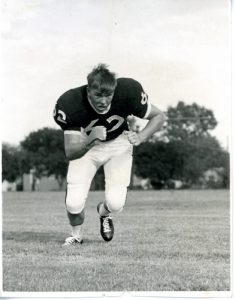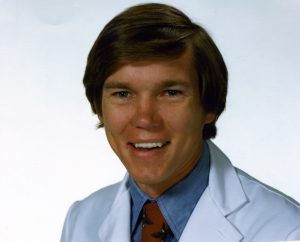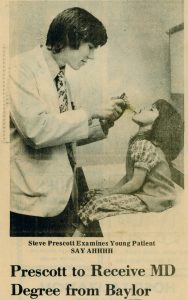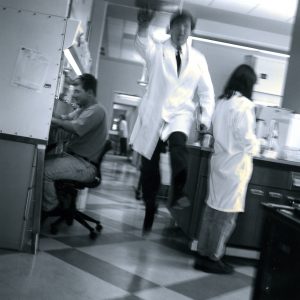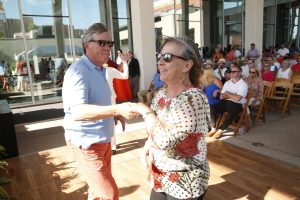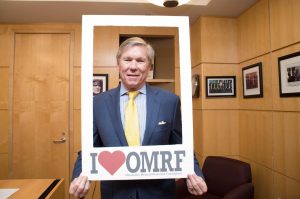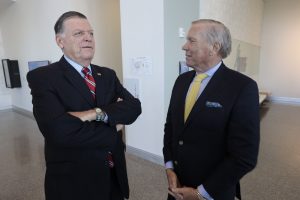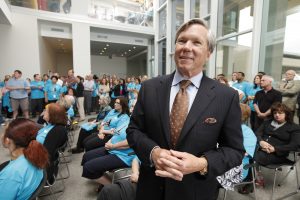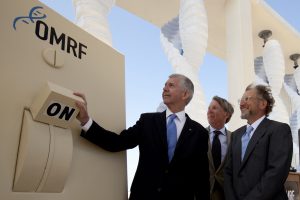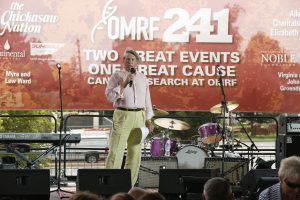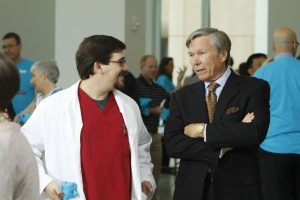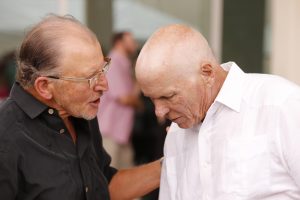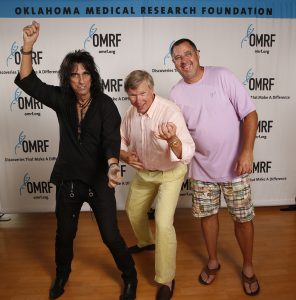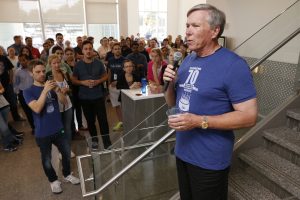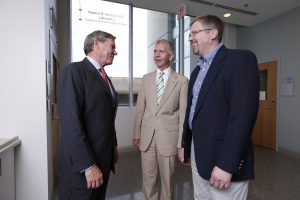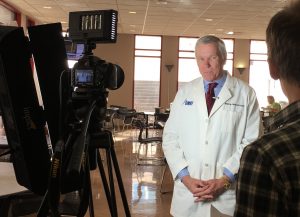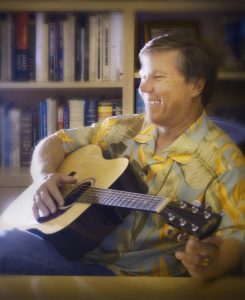“I’ve had the great fortune to live a charmed life. I’ve spent each day immersed in medical research,” Dr. Stephen Prescott said when he was inducted into the Oklahoma Hall of Fame in 2020. “When you do something you love, you don’t work a day in your life.”
After a four-year journey with cancer, Dr. Prescott passed away on May 28, 2021. He was 73 and had just marked his 15-year anniversary as president of OMRF.
Before he was an internationally recognized vascular biologist or a leader of two different institutions (OMRF and the Huntsman Cancer Institute), Dr. Prescott grew up in College Station, Texas. Even though his father was a biochemistry professor, science wasn’t his first love. “I spent way too much of my life dreaming of being a major league baseball player,” he remembered in a 2006 interview with Findings magazine.
When college curveballs put an end to that fantasy during his freshman year at Texas A&M University, the one-time outfielder decided to redirect his energy into pre-med classes. After three years and an honors degree at A&M, he headed to the Baylor College of Medicine, where he also graduated with honors. A residency in internal medicine at the University of Utah and a post-doctoral fellowship at Washington University in St. Louis followed.
It was in St. Louis that Dr. Prescott cut his teeth as a medical researcher. “I’m innately curious, and I like to understand how things work,” he said. “So, I knew I wanted to have a career in research.”
Dr. Prescott joined the faculty at the University of Utah, where he enjoyed an eminent career in the lab. The underlying theme of his research was understanding how blood vessels behave. The field didn’t have a name when Dr. Prescott began his research career, but by the early 1990s, scientists had coined the term “vascular biology” to describe this emerging discipline.
The work had implications for heart disease, but it also touched a number of different areas. His research led to the development of Cox-2 inhibitors, the anti-inflammatory drugs now used to treat severe arthritis. And it led him into cancer research, searching for new ways to stop tumor growth. Appointments as the senior director for research and, ultimately, executive director of the university’s Huntsman Cancer Institute followed.
For many years, Dr. Prescott kept up with the research at OMRF through Dr. Rod McEver, OMRF’s vice president of research, whom he knew from his first research fellowship in St. Louis and through scientific collaborations. He also served on OMRF’s scientific advisory board and as an external advisor on an OMRF grant. So, when he learned that OMRF was searching for a new leader, he decided to take a look. “He was very impressed with everybody,” remembered his wife, Susan. “The more people he met, the more convinced he became that OMRF was the right place.” In 2006, Dr. Prescott became OMRF’s ninth president.
Over the next decade and a half, he guided OMRF to new heights. He led the largest campus expansion in foundation history, raising $100 million to construct a new research tower, which added 186,000 square feet of research and clinical space when it opened its doors in 2011. It houses a variety of state-of-the-art labs, including one that bears Dr. Prescott’s name, thanks to the generosity of the Puterbaugh Foundation. The tower is also home to OMRF’s Multiple Sclerosis Center of Excellence, which now counts 3,000 patients from Oklahoma and surrounding states.
During his time at the helm, OMRF three times earned designation as a National Institutes of Health Autoimmunity Center of Excellence. Dr. Prescott recruited more than 40 new principal investigators to the foundation, and three drugs born in OMRF labs reached the market. OMRF also repeatedly earned top marks from Charity Navigator, the nation’s leading nonprofit evaluator, and among surveys ranking Oklahoma’s top workplaces.
As with his research – 270 articles cited nearly 40,000 times – his leadership earned him numerous plaudits. Among those honors were Oklahoma’s Most Admired CEO, the Hall of Fame Leadership Award from the OK Bioscience Association, and, finally, induction into the Oklahoma Hall of Fame. Not bad, Dr. Prescott would have joked, for a recovered Texan.
In April, he announced his retirement. Since being diagnosed with urothelial cancer in 2017, he’d been open with his health struggles. While the treatments proved debilitating at times, he showed remarkable resiliency and positivity in the face of odds that grew increasingly long. “Not once did I hear him say, ‘Why me?’ or feel sorry for himself,” said Len Cason, chair of OMRF’s board.
Dr. Prescott said that his cancer journey gave him a fresh appreciation for research. “It’s driven home why it’s so important to keep searching for new approaches to treat disease,” he wrote in 2019. But, he said, the most “wonderful” part of having cancer was the support that so many people showed to him and his family.
When he passed away, he was surrounded by his family. He is survived by Susan, his wife of more than 50 years; his children, Allison and John; and his granddaughters, Ruby, Lily and Isabella (all three of whom he liked to describe as “perfect”).
Upon news of his death, U.S. Rep. Tom Cole released a statement that spoke for countless Oklahomans. “I am deeply saddened to hear about the passing of my dear friend Dr. Stephen Prescott,” Cole said. “In addition to being a spectacular leader who took the Oklahoma Medical Research Foundation to the next level, he was a treasured friend and close advisor on issues related to biomedical research and science. He will be greatly missed by me in both capacities.”
We are collecting remembrances of Dr. Prescott. If you have one, we encourage you to share it below so we can share it with his family. If you prefer to share your thoughts privately, please email contact@omrf.org.
